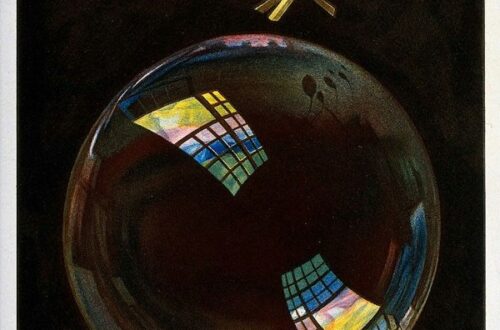The Elsewhere Oracle
by Michele Battiste
see TOC for art attributions
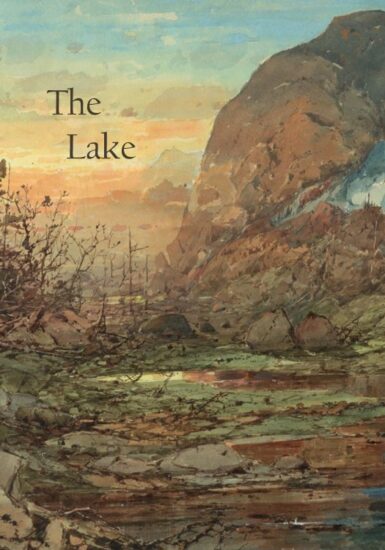
Green like beginning (leaf primordium)
Green like promise (tangle of snakes)
Green like amulet (scarab’s carapace)
Green like essence (secreted bile)
Green like riddle (hidden katydid)
Green like storm (tornado light)
Green like fortune (emerald vein)
Green like gamble (debtor’s note)
Green like toxin (stem of foxglove)
Green like murk (understory)
Green like monster (from the shoreline)
Green like something soon to come
Oracle
To be superficial is to lack depth, to be concerned only with appearance. Superficial also implies a false appearance, to seem to be one thing on the surface until closer inspection. Green water lakes can be striking, often possessing a fairy tale quality. Sometimes, when the light hits them, they emanate an otherworldly glow.
But their beauty can be deceptive. Green lakes are often choked with algae, which gives them their vibrant color. Fed by agricultural runoff, dense with fertilizer, algae blooms produce toxins and use up all the oxygen, killing fish and other aquatic life.
It is always easier to remain floating on the surface than it is to plumb the depths, but staying at the surface can give us a false sense of safety—even prove to be dangerous—when we don’t know what lies beneath. Where do you need to take a deep breath and dive deeper? Into a relationship? A pattern of behavior? Your family’s finances? Events in the past that you’ve blocked? You may already suspect what you’ll find. Or you may discover that the monsters of your imagination are far worse than the monsters of the deep.
The Orphan
Records Sealed. 1
Oracle
It is easy, and often preferred, to assign responsibility to others. Blame is buoyant and fun to fling about. There are some who find you an easy target to scapegoat, and sometimes all they need is your proximity to invent a poor turn of events and call you the cause.
On the flip side, assuming guilt has its attractions. To be guilty is to have power. To claim responsibility is another way to claim control. You are not that important most of the time. Which is to say that sometimes you have grave responsibility and must wield it—and its impact on others—carefully. Other times, however, when the finger is pointed at you, go ahead and roll your eyes and turn away. Your energy is best spent elsewhere.
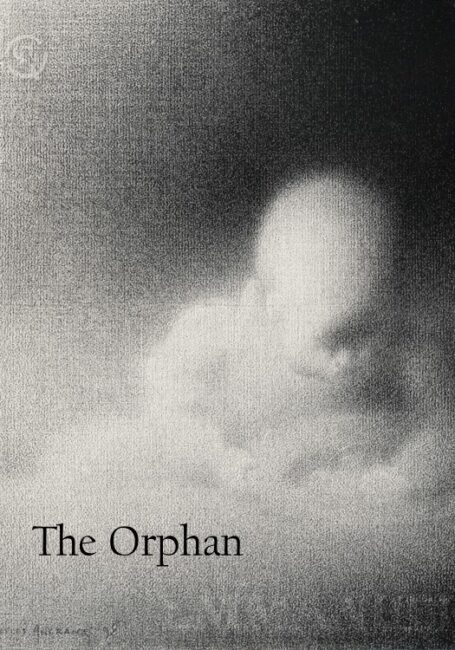
1There were more of us once. When orphans
were a thing. After the war, the pandemic, the gypsy
killings, yadda yadda. Once we were emblematic
of a common, possible fate. No one hated us and we hated
only the lucky. That was before the town
started looking for sources of ruin, branded us
defective, more unsavory than tragic. Which is to say
we grew older, free ranging, exhibited signs of early
puberty. Our prime real estate rankles the Council—
the orphanage a Greek-revival holdover of civic
charity: a community that once took care
of its own. Our benefactor was wise
to the town’s evolving priorities and adaptive
municipal processes. The row of catalpas obscure
a tall fence established the same year as the airtight
endowment. The staff are, for the most
part, caring and handsomely compensated. The smallest
orphans have the most say, and we developed
necessary efficiencies to handle a minder
we prefer gone. And we benefit, more often
than not, from excessive and anonymous kindnesses.
Hunters bring us fresh sausage and haunches. The older
children are favored with music lessons funded by donations.
I have chosen piano, and no one is in charge.
The Gardener
I dreamt the first garden once, Once, the extension
lush and uncontained. Goats rep suggested a ten-foot
gamboled and nosed without fence to prevent trespass. Deer,
stripping new kale or the tender rabbit, squirrel. Plant
tops of carrots. Peacocks napped the perimeter with mint
with foxes, red pandas played and rhubarb, chive
with mink. Jeweled hummingbirds and fennel, enough garlic
hovered tirelessly. Rain came, to choke a buck. Onions
gently feeding streams that meandered around tomatoes,
through hidden caches of mustard among the
squash and spinach and sweet pea and melon,
beet and cucumber and peppers and sprouts.
The tree, unremarkable, was one Stake the dripline. Tie
of many. It bore forgettable the net. But I don’t begrudge
fruit. Dark, I think. Sooty. the animals what they make
It was not tempting but still off with. They give
I tasted. Nothing happened. Nothing back what they get.
needed to. We were simply left
to do our worst.
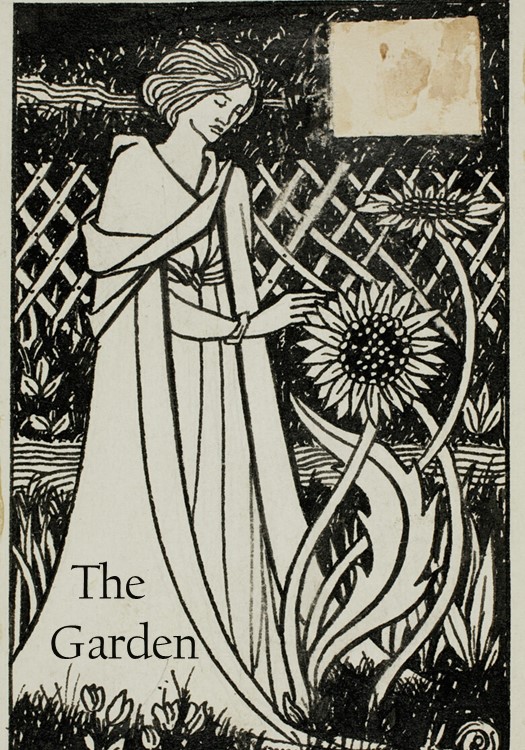
Oracle
The ideal situation is often ideal because it is unknown. We don’t know its hidden blemishes, and we are good at filling unknown gaps with what we desire for ourselves. What we see: the couple that never fights, a colleague’s cushy job, a rival’s award, the friend whose social platforms blow up every time she posts. What we don’t see: loneliness and lack of connection, invisible workloads and mental stress, late nights and savings spent on chasing accolades, addiction to the short-lived, throw-away attention of strangers. What we forget: those who look at our lives and covet what we have.
It may be that, right now, it’s easier to covet thy neighbor’s whatever than it is to contend with aspects of your life that are disappointing or banal. And that’s okay. We can’t be working on ourselves all the time. But don’t fall into the sinkhole of comparison. It’s never a fair one. There’s no way that your reality can come out ahead when sized up next to imagined greener grasses. Instead, understand that what you see as ideal is actually a vision of what you want for yourself. Claim that vision and move toward it.

The Almanac
What is to come: a mild
winter, murky spring. Lengthening
days that sputter one midnight to the next
and stall. Rustling tree the limit
line on several windless of arboreal growth
nights. Plant beneath a budding
moon when waning crescent. alternative May moons
Do not rush harvest. The first
frost will hesitate. Junipers
will encroach. Collect
piñons. Toast the meridian an imaginary semi-circle
each time planets of sky arcing overhead
cross. Jupiter will shine
as bright as the old gods. light reflected from a star
A good year for Brussel sprouts,
the Perseids, Samhain. Postpone death-night of the old year
ghost hunts, controlled
burns, dredging the spring. If air
stagnates, switch your pickling lacto-fermentation
brine. The mountain will
erode endlessly. Autumn slopes erode to become more gentle
will be eternal. Guard your time. less likely to collapse
Oracle
What do we trust to intuition, and when do we go outside ourselves for guidance and signs? Considered either instinctual or unconscious, intuition appears to have an oppositional relationship to cognition. However, intuition is strengthened by conscious processes—learning, synthesis, reasoning—ingrained in our unconscious until we don’t know how we know, we just know.
If you find yourself second-guessing your intuition, remember that it is not some mystic sixth sense. It is the grand accumulation of your knowledge and perceptions (as well as the accumulated knowledge and perceptions of your ancestors). See where it leads you. If it seems that your intuition has been recently taking you down the wrong path, it may not mean that you need to get more in touch with your inner self. It may be that you need to look outward. Do some research. Ask an elder. Take a class. Feed your intuition before you trust it. Then trust it. This is no time for self-doubt.
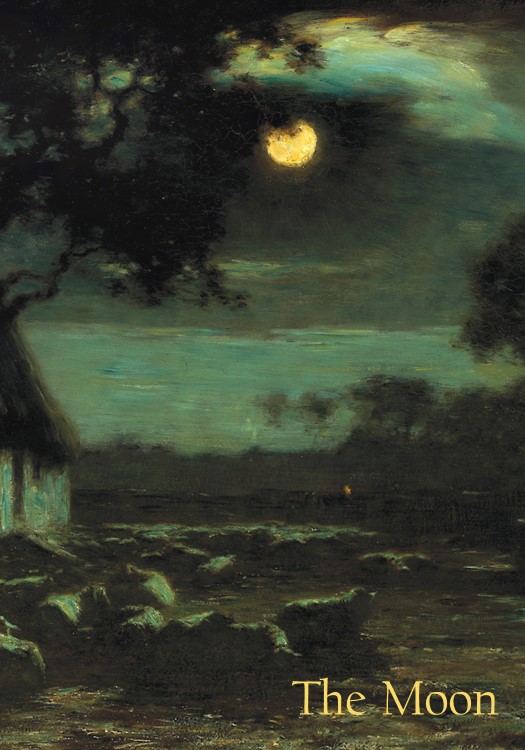
If the moon could feel pity it would not
pity the town of Elsewhere. If the moon
could help it would not
help. If the moon could provide guidance
or empathy it would, instead, practice the cruel art of
withholding. So far
away the moon can barely be bothered. So ancient, the moon
knows even a few words of encouragement (which
costs the moon nothing) would arrive
too late, future generations puzzled by her mumblings,
gazing up at passions obscured
by the bend of space and time. The moon offers only
the illusion of proximity, pulling at tides
and blood cycles,
saying this is something.
This is more than enough.
Oracle
It’s hard to believe that something that spends its entire existence orbiting us could be indifferent to our fate. But with each turn around the earth, the moon is also distancing itself from us at a rate of 1.5 inches a year (so says science). The moon is constant, rising and setting each day, but it is also inconstant, the time of its rise always changing, its phases and movements dependent on the earth’s spinning and tilted orbit around the sun. Beautiful and mystifying, the moon is attributed to both feminine power and provoking the monstrous. It’s complicated. And confusing.
Perhaps you are in a period of confusion, looking for answers where none exists. Or you may be feeling ambivalent or uncertain, not trusting your instincts or senses. Though unsettling, these periods of fluctuation and limbo can be a time for introspection and inaction—learning and perceiving instead of deciding and doing. And like the moon, you will pass through this phase soon enough, and soon enough you will pass through it again.
The Sun
No gold but honey no
coin but corn. No fortune
but horizon ten minutes
before dawn. Lemon
pith, peach swell, melon
in dirt, songbird, dragon
fly, columbine, goat. No
shadow but shades no
storm no smoke. No jewel
but cherry no red but
heart. Glint from the mine
shaft, shimmer in
the woods. No drink
but juice from the red
bright fruit.
Oracle
Joy does not come from reason or logic. Abundance can be unearned. You may work hard for good fortune and happiness but not achieve them, only to be showered by random blessings and windfalls when you least expect it. We make our own luck, but it’s foolish not to acknowledge external factors at play that can be stronger than our will.
There’s no telling how the universe works, how it balances out or doesn’t. Sometimes circumstances come together in incredibly beneficent ways that we could never orchestrate on our own and would never have planned or expected. It could be that you are currently experiencing a period of good fortune or that it is impending. It could also be that you just really, really need some luck right now. It is coming. The important thing is not to squander it. Use it to fuel your fire and burn brightly while you can.
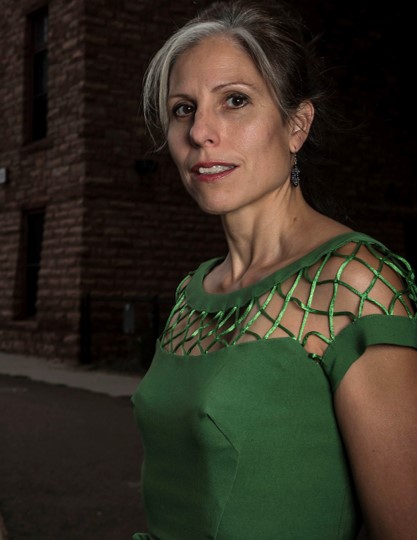
Michele Battiste is the author of several books of poems, including Waiting for the Wreck to Burn, which won the Louise Bogan Award from Trio House Press. Her next book, The Elsewhere Oracle, doubles as an oracle deck, and it is due out in the fall of 2025 from Black Lawrence Press. She lives in Colorado where she misses the ocean and raises money to protect nature and slow climate change. www.michelebattiste.net


